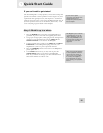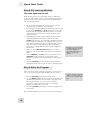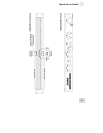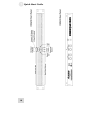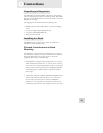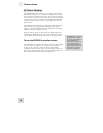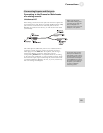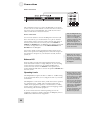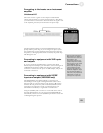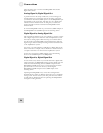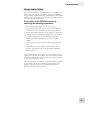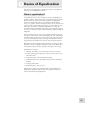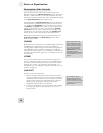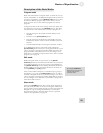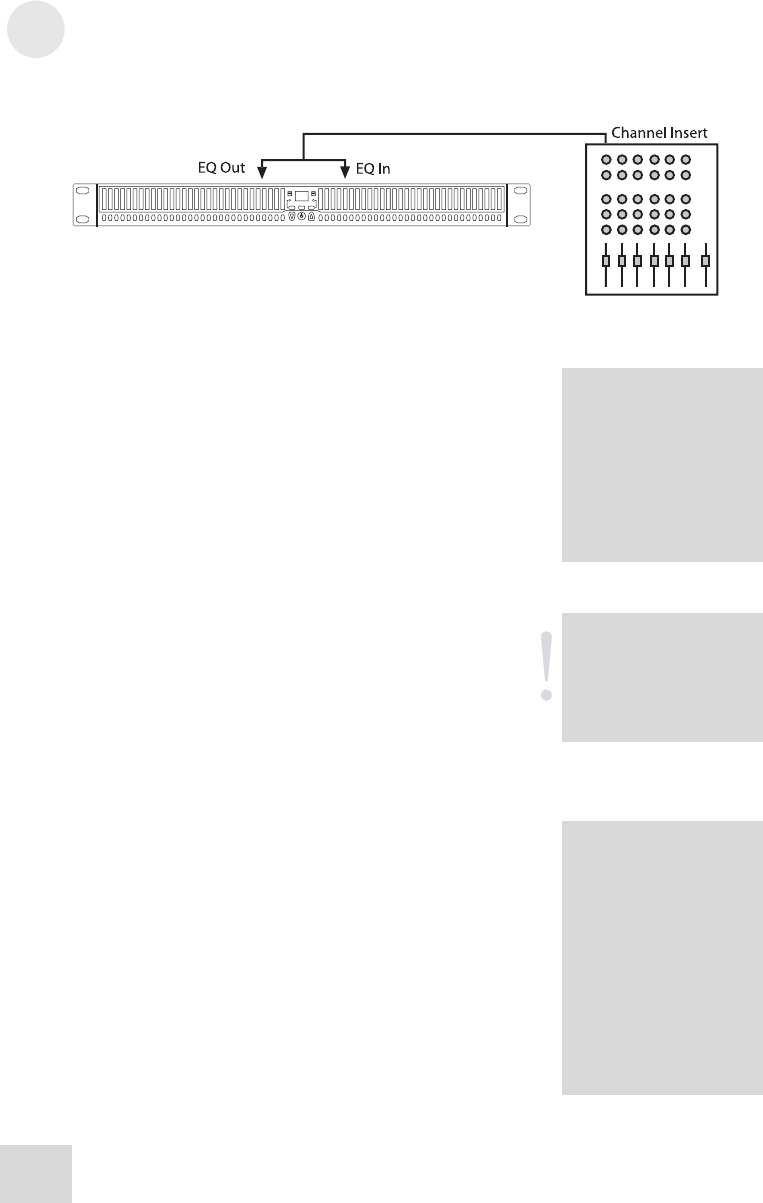
2 Connections
22
Mono connections
This example shows how to connect the DEQ230 to one mono
source. You can use this method to connect two mono sources or
one stereo source to the DEQ230. You would need two insert
cables to make both of these connections.
Stereo connections
Use two insert cables to connect the DEQ230 to the main L/R
bus in the same way you would connect it to a pair of channel
inserts. Simply connect one insert cable to the left main insert of
the mixer, and connect the two mono jacks to the CHAN A
INPUT and OUTPUT of the DEQ230. Use another insert cable
to connect the right main insert to the CHAN B INPUT and
OUTPUT of the DEQ230.
You can also simply connect the balanced main outputs of the
mixer to the inputs of the DEQ230, then connect the outputs of
the equalizer to the inputs of your mixdown recorder, monitor
system, etc.
Balanced I/O
Some recording consoles have separate balanced jacks for the
sends and returns instead of a single TRS jack. If your recording
console has these connections, use a balanced TRS cable to
connect the insert send to the INPUT of the equalizer, and
another balanced TRS cable to connect the equalizer OUTPUT to
the insert return.
Operating Levels
The DEQ230D can operate in either a +4dBu or –10dBV setting.
A rear panel switch allows you to configure the unit to your audio
environment.
The DEQ230 is a “line level” device, which means that it operates
at a nominal level of –10dBV, with a maximum input level of
+8dBV. Some equipment operates at a nominal level of +4dBu,
and can run the signal up to +24dBu. To prevent clipping, reduce
the level being sent from this equipment.
If you are unsure about the nominal operating level of the
equipment to which you will be connecting the DEQ230, refer to
the Reference Manual for that equipment.
Since the DEQ230 has two
channels, A and B, you can
connect two independent
sources. For example, you
could use channel A to EQ
the rhythm guitar and
channel B to EQ the bass
guitar. Or use channel A on
the kick drum and channel B
f
or the snare drum.
M
odern production values
sometimes lead to the heavy
use of compression during
the mastering process. When
p
rocessing CD audio, you
may find it necessary at
times to lower the Channel
L
evel of the active program
so as to avoid clipping the
output stage of the DEQ230.
This will allow additional
headroom for more
extensive equalization. See
p
g. 42 for details on the
Channel Level function.
N
ever place the equalizer
between the power amp and
the speakers, as the high-
p
owered levels created by
the power amp will damage
the DEQ230.




